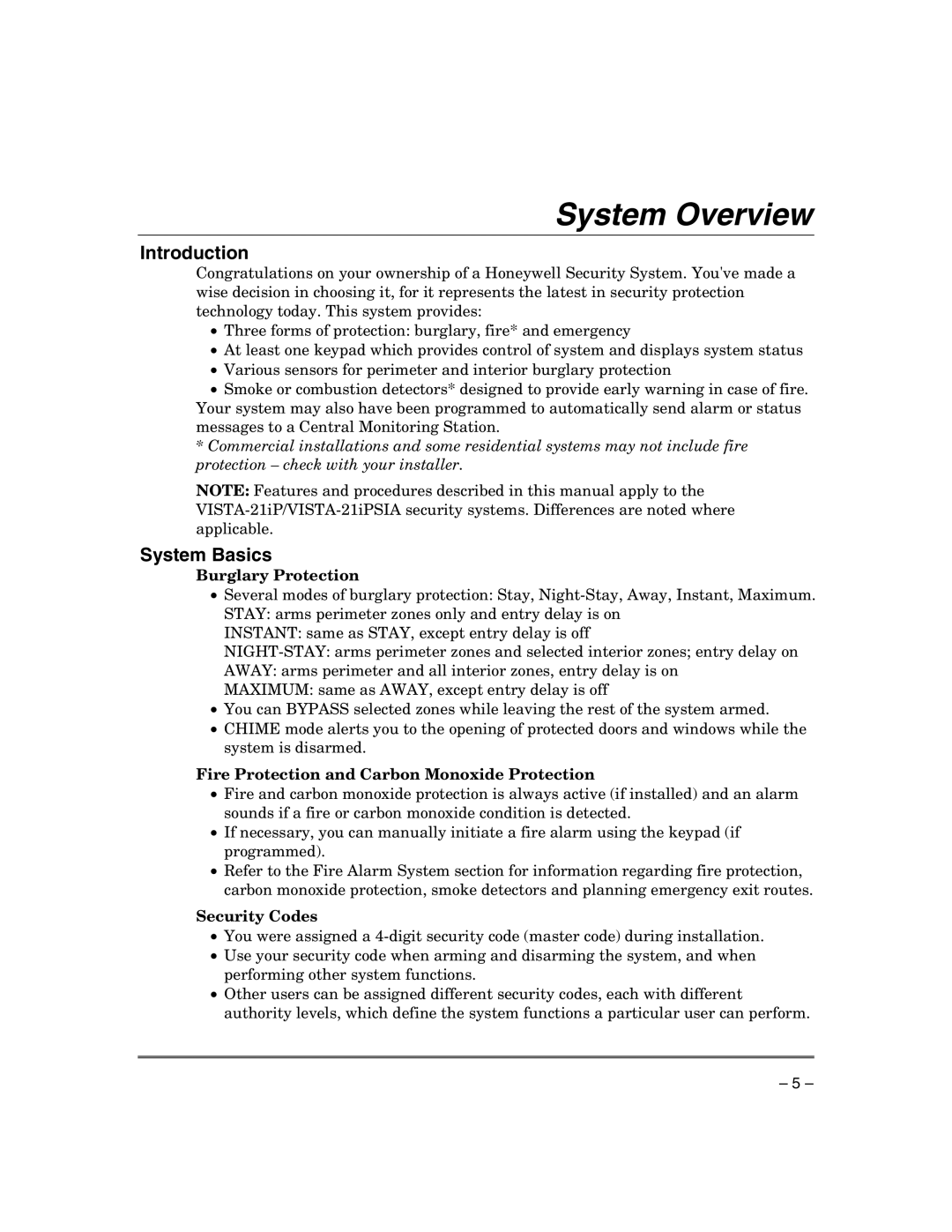
System Overview
Introduction
Congratulations on your ownership of a Honeywell Security System. You've made a wise decision in choosing it, for it represents the latest in security protection technology today. This system provides:
•Three forms of protection: burglary, fire* and emergency
•At least one keypad which provides control of system and displays system status
•Various sensors for perimeter and interior burglary protection
•Smoke or combustion detectors* designed to provide early warning in case of fire. Your system may also have been programmed to automatically send alarm or status messages to a Central Monitoring Station.
*Commercial installations and some residential systems may not include fire protection – check with your installer.
NOTE: Features and procedures described in this manual apply to the
System Basics
Burglary Protection
•Several modes of burglary protection: Stay,
STAY: arms perimeter zones only and entry delay is on
INSTANT: same as STAY, except entry delay is off
AWAY: arms perimeter and all interior zones, entry delay is on
MAXIMUM: same as AWAY, except entry delay is off
•You can BYPASS selected zones while leaving the rest of the system armed.
•CHIME mode alerts you to the opening of protected doors and windows while the system is disarmed.
Fire Protection and Carbon Monoxide Protection
•Fire and carbon monoxide protection is always active (if installed) and an alarm sounds if a fire or carbon monoxide condition is detected.
•If necessary, you can manually initiate a fire alarm using the keypad (if programmed).
•Refer to the Fire Alarm System section for information regarding fire protection, carbon monoxide protection, smoke detectors and planning emergency exit routes.
Security Codes
•You were assigned a
•Use your security code when arming and disarming the system, and when performing other system functions.
•Other users can be assigned different security codes, each with different authority levels, which define the system functions a particular user can perform.
– 5 –
